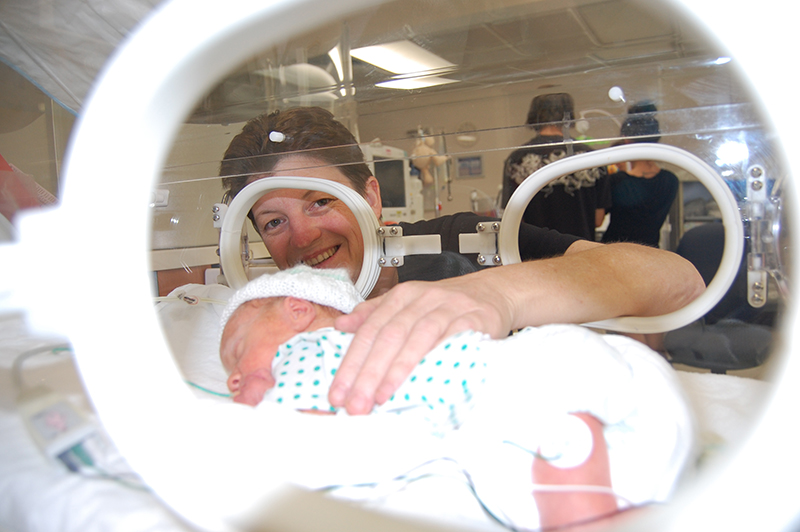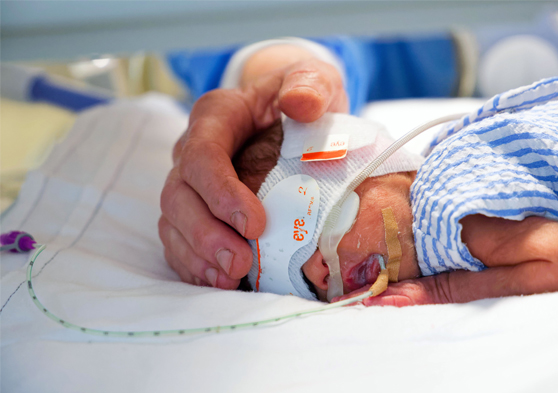Search

The Chronobiology team works to understand the factors that contribute to poor lung and heart function in newborn infants and find ways to prevent heart and lung disease.
Research
Enteral Vitamin A for Reducing Severity of Bronchopulmonary Dysplasia: A Randomized TrialEvidence suggests that intramuscular vitamin A reduces the risk of bronchopulmonary dysplasia (BPD) in preterm infants. Our objective was to compare enteral water-soluble vitamin A with placebo supplementation to reduce the severity of BPD in extremely preterm infants.
Research
Simplified bedside assessment of pulmonary gas exchange in very preterm infants at 36 weeks' postmenstrual ageWe aimed to develop and validate a prediction table for a simplified measure of rightward shift of the fetal oxyhaemoglobin saturation (SpO2) versus inspired oxygen pressure (P IO2) curve as an objective marker of lung disease severity in very preterm infants, independent of unit altitude or oxygen prescribing policies.
Research
Interleukin-4 modulates type I interferon to augment antitumor immunityDespite advances in immunotherapy, metastatic melanoma remains a considerable therapeutic challenge due to the complexity of the tumor microenvironment. Intratumoral type I interferon (IFN-I) has long been associated with improved clinical outcomes. However, several IFN-I subtypes can also paradoxically promote tumor growth in some contexts.
Research
Comparison of "IN-REC-SUR-E" and LISA in preterm neonates with respiratory distress syndrome: a randomized controlled trial (IN-REC-LISA trial)Surfactant is a well-established therapy for preterm neonates affected by respiratory distress syndrome (RDS). The goals of different methods of surfactant administration are to reduce the duration of mechanical ventilation and the severity of bronchopulmonary dysplasia (BPD); however, the optimal administration method remains unknown.
Research
Ventilatory response and stability of oxygen saturation during a hypoxic challenge in very preterm infantsPreterm infants have immature control of breathing and impaired pulmonary gas exchange. We hypothesized that infants with bronchopulmonary dysplasia (BPD) have a blunted ventilatory response and peripheral oxygen saturation (SpO2 ) instability during a hypoxic challenge.
Research
Vitamin A supplementation in very-preterm or very-low-birth-weight infants to prevent morbidity and mortality: A systematic review and meta-Analysis of randomized trialsA previous systematic review showed that intramuscular vitamin A supplementation reduced the risk of bronchopulmonary dysplasia (BPD) in very-low-birth-weight (VLBW) infants. However, more recent studies have questioned this finding.

Research
Characterising the development of molecular and hormonal circadian rhythm development in preterm infantsJane Pillow BMedSci (Dist) MBBS, PhD (Dist) FRACP Head, Developmental Chronobiology jane.pillow@thekids.org.au Head, Developmental Chronobiology

The CIRCA DIEM Study is a clinical research study being coordinated by the Chronobiology Team at Telethon Kids Institute, who are based in Perth, Western Australia and involving research teams from around the world.
